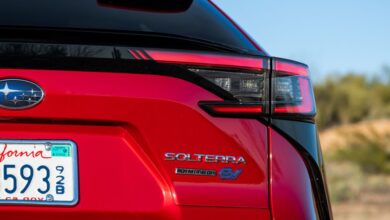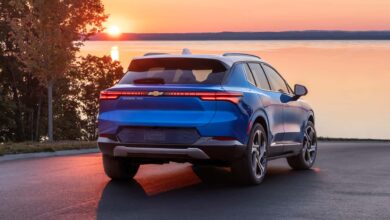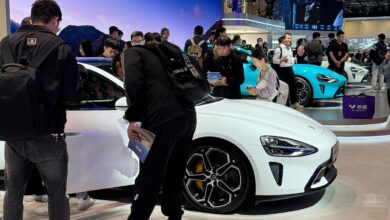Fascinating new survey suggests EVs are terrible value for money – and gives reasons why owners are scared to drive their electric cars
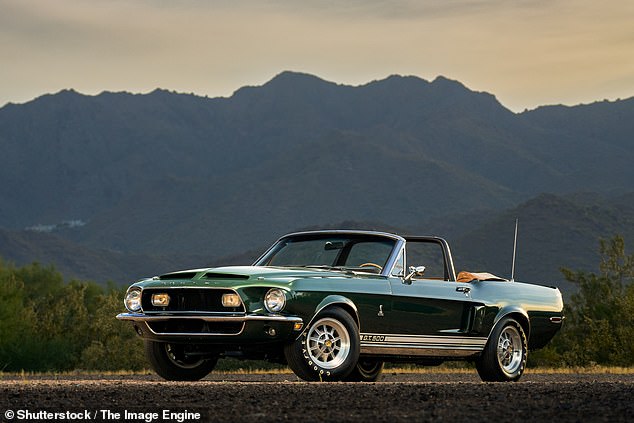
Electric vehicles are used 20 percent less than gas-run cars, a new survey revealed – as it suggests what’s holding many drivers back from using futuristic automobiles.
According to a survey from iSeeCars, electric cars are driven the least out of all vehicles – but cost the most.
When comparing how people use electric cars versus hybrid and electric vehicles – data revealed that three-year-old gas cars are driven 12,813 miles a year and EVs are driven 10,256, 20 percent less.
Electric vehicles cost 63.6 percent more for every 1,000 miles driven per year compared to gasoline cars.
Hybrid vehicles and plug-in hybrids are also driven less than gasoline – but only by 2.7 and 4.8 percent, respectively.
Electric vehicles are used 20 percent less than gas-run cars as a new survey reveals what’s holding many drivers back from buying the futuristic automobiles
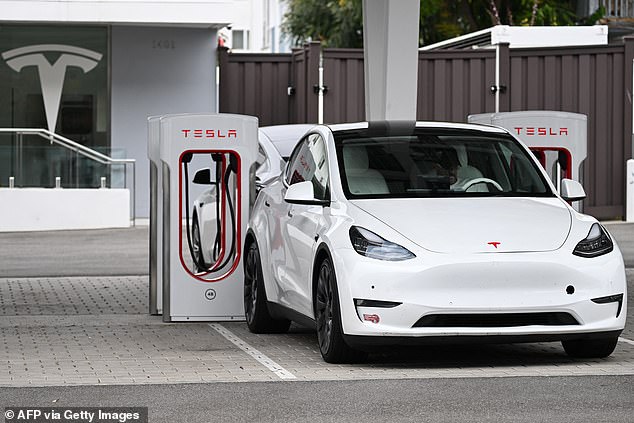
An expert explained why drivers are hesitant to use electric vehicles, besides the hefty price tags – saying that people are anxious that the car’s battery might die and leave them stranded without access to a charging station
The average cost of an electric car for every 1,000 miles driven per year is $5,108 – compared to $3,056 for a hybrid car, $3,123 for a gasoline car and $4,351 for a plug in hybrid.
An expert explained why drivers are hesitant to use electric vehicles, besides the hefty price tags – saying that people are anxious that the car’s battery might die and leave them stranded without access to a charging station.
‘Range anxiety and charging infrastructure are top-of-mind for EV drivers, and those factors likely limit how far owners will drive them,’ said Karl Brauer, iSeeCars Executive Analyst.
‘Hybrids and plug-in hybrids, where all-electric battery range is limited but range anxiety isn’t a factor, are driven only slightly less than gasoline cars, as reflected in their similar yearly mileage.’
Elon Musk’s Tesla is the most driven electric vehicle – with the Model 3, X and Y all covering more than 11,0000 miles a year – above the EV average of 10,256 annual miles.
After Tesla, the next most driven electric vehicle is the Hyundai Kona Electric – followed by the Ford Mustang Mach-E, the Audi e-tron and the Volkswagon ID.4.
The iSeeCars data revealed that hybrids are the most cost-effective vehicles – and are actually even better than gasoline cars.
‘Hybrids have become increasingly popular with consumers in recent years,’ said Brauer.
‘And now many mainstream models, including the newest Toyota Camry, are only sold as a hybrid. This technology is set to become the dominant drivetrain throughout the industry.’
The surveys findings come as electric vehicles continue to face criticism for a variety of shortcomings of the new technology.
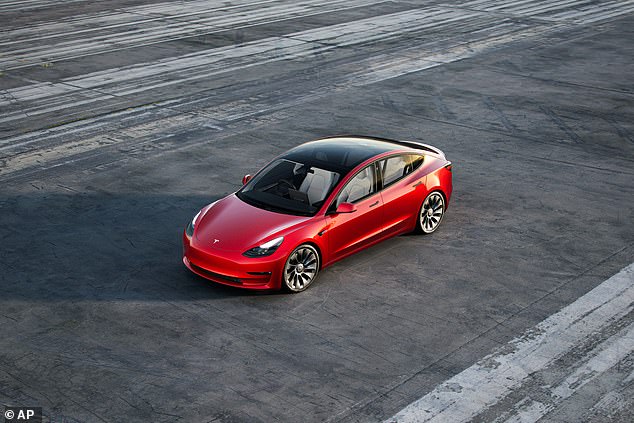
There are growing reports of electric car drivers suffering motion sickness, dizziness and nausea from the vehicles’ braking and acceleration systems

Elon Musk’s Tesla is the most driven electric vehicle – with the Model 3, X and Y all covering more than 11,0000 miles a year – above the EV average of 10,256 annual miles
There are growing reports of electric car drivers suffering motion sickness, dizziness and nausea from the vehicles’ braking and acceleration systems.
And a former Tesla owner has claimed that she experienced nosebleeds, hair loss and ‘debilitating’ body pains while using the vehicle she purchased in 2021.
While she was not entirely sure the Tesla was at fault, the Georgia resident and said her symptoms disappeared after selling the car.
Tesla owners have had to trade in some models because the air conditioning systems were prone to mold, which can cause asthma-like symptoms.
Tesla has been accused of being the ‘worst offender’ for causing motion sickness from its one-pedal throttle because they can be ‘very jerky and really abrupt,’ Ed Kim, president and chief analyst of AutoPacific said.
The value of a used Tesla fell by more than $1,000 on average in the first half of January, new figures show.
Between January 1 and 18, the average list price of a Tesla fell from $36,410 to $35,370, according to data from used car platform CarGurus.
Over that same period the company’s share price also fell by more than 15 percent.
